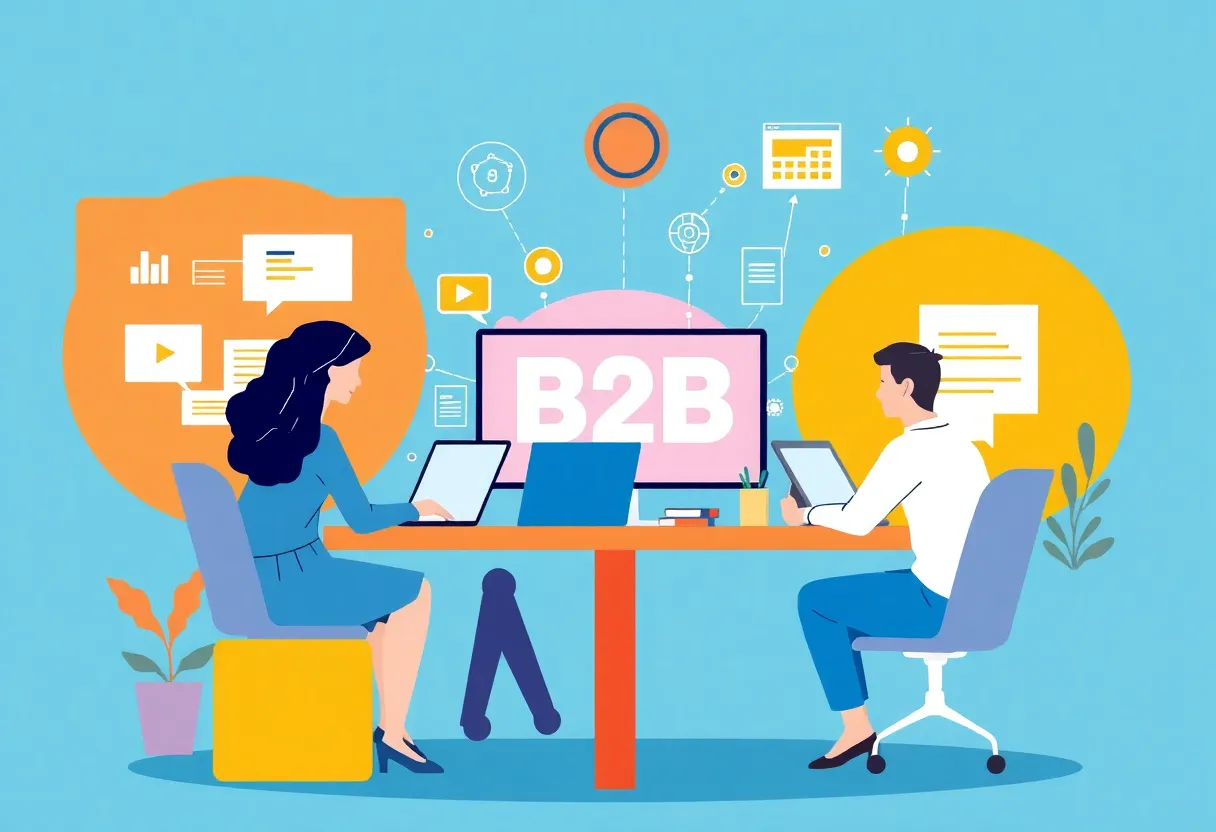News Summary
As technology rapidly advances, B2B marketing faces several integration hurdles due to fragmented tools and data. A cohesive approach is now essential for businesses to strategize and execute their marketing plans effectively. Many marketers express dissatisfaction with their planning tools, highlighting the need for a unified solution that provides real-time insights and seamless integration. Embracing omnichannel strategies and generative AI presents opportunities for growth, but marketers must adapt to these evolving technologies to thrive in an increasingly competitive landscape.
B2B Marketing: Navigating Integration Hurdles Amid Technological Evolution
In recent times, the landscape of B2B marketing has become increasingly intricate, largely due to the rapid advances in technology. While these innovations promise enhanced efficiency and effectiveness, many marketing teams find themselves grappling with the challenges posed by fragmented tools and data. As businesses strive to strategize and execute their marketing plans, it’s becoming clear that the need for a cohesive approach is more pressing than ever. Let’s dive into what’s been happening in this dynamic field.
The Challenge of Fragmentation
Many companies document and track their B2B marketing strategies on an annual basis, ensuring that they align closely with financial goals. However, a surprising number of marketers—about 47%—report facing challenges in planning across multiple systems. This fragmentation leads to complications in managing and tracking marketing plans effectively.
According to a survey of 100 B2B marketers, around 60% rely on project management platforms to streamline their processes. Meanwhile, about 40% still use traditional productivity tools like PowerPoint and Excel. While these tools can be useful, they often lack the capability to capture live data. This is a significant drawback since real-time insights are vital for evaluating the effectiveness of any marketing strategy.
The Role of Technology in B2B Marketing
As new technologies emerge, many are reshaping the way businesses approach market research, persona development, and content creation. However, it appears that the basic planning tools within the marketing tech stack need a significant upgrade. Despite the intriguing possibilities offered by artificial intelligence (AI), many tools struggle with real-time insights and seamless integration with existing systems.
Companies require tools that can effortlessly integrate with various platforms to manage budgets, monitor progress, and share results efficiently. Unfortunately, many native CRM systems and marketing automation platforms fall short in budget planning and spend-tracking capabilities. As a result, marketers express dissatisfaction—about 30% feel their tools are limited in flexibility and miss the mark on providing a unified space for performance tracking.
Assessing the Satisfaction Levels
The average Net Promoter Score (NPS) for satisfaction with planning tools in the marketing sector currently sits at -22. This tells us that there is a significant gap between what marketers expect and what they actually get from their tools.
Generative AI: A Missed Opportunity?
Generative AI tools present exciting opportunities for improving planning strategies; however, they often lack consistent performance tracking capabilities due to limited access to internal systems. As automation in marketing tasks grows in popularity, many companies are discovering that these technologies can drive significant growth by streamlining operations and personalizing customer interactions.
The Road Ahead: Embracing Omnichannel Strategies
B2B businesses are increasingly adopting an omnichannel marketing approach, leveraging AI-driven tools to orchestrate targeted campaigns more effectively. This shift reflects a growing demand for efficient automation strategies, which many organizations are reporting have yielded positive results. It’s becoming clear that B2B brands that harness the power of AI and automation may find themselves better aligned with revenue goals and enhanced operational efficiency.
Conclusion: The Evolving Landscape
As the marketing landscape continues to evolve, the integration of new technologies offers both immense potential and notable challenges. Navigating these complexities will be essential for businesses aiming to thrive in an increasingly competitive market. The need for an integrated approach to B2B marketing couldn’t be more obvious, and as tools improve and evolve, marketers will need to stay on their toes to adapt effectively.
In summary, while technology has the power to transform B2B marketing, marketers must advocate for the solutions that truly meet their needs. With the right tools and a willingness to adapt, the possibilities for successful marketing strategies are boundless.
Deeper Dive: News & Info About This Topic
HERE Resources
Navigating the Evolving Landscape of AI Marketing Tools
Email Marketing: A Comeback Kid in the Digital World
Exciting Times Ahead: AI in Marketing Is Poised for Remarkable Growth!
AHSTW Students Dive into Social Media Marketing with Local Businesses
US B2B Marketers Embrace AI and Social Media Ads: A Look Ahead to 2025
Runestar LLC Launches Unified Marketing Model to Support Small Businesses in Minnesota
Emerging Trends in Digital Marketing for 2025
The Unmatched Benefits of Digital Marketing: A Game Changer for Businesses
Retailers Taking Notes: The Shift to Social Media Strategy
How Predictive Analytics is Transforming Marketing Strategies
Additional Resources
- CMSWire: The Forgotten Art of Planning in B2B Marketing
- Wikipedia: B2B Marketing
- MarketingProfs: Business Automation for Scalable B2B Marketing & Sales
- Google Search: B2B Marketing Strategies
- DemandGen Report: How Flexible Frameworks Will Drive 2025 Sales & Marketing Strategy
- Encyclopedia Britannica: Marketing
- Marketing Brew: Latest Issues
- Google News: Business Automation in B2B Marketing








